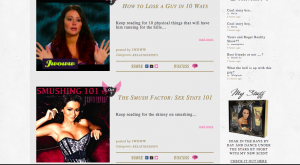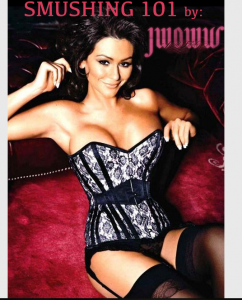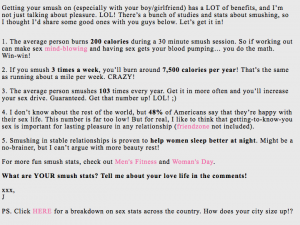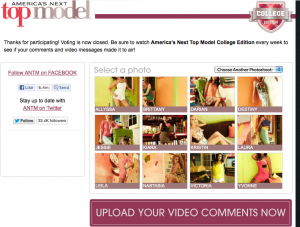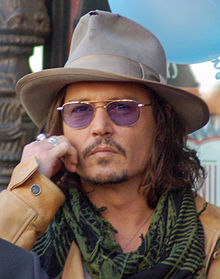
Category: Uncategorized
Speaking of news and social media… this is incredible.
http://www.betcheslovethis.com/article/mitt-romneys-burn-binder
Concerns! (sorry to be a “downer”)
The main idea that I got from the readings on web 2.0 is that of the Internet’s generation of a “participatory culture”. Certainly, I see the tremendous value in such a space of connectivity and collaboration, hyperlinking, and multimodality.
But then I think of other factors such as enacting identity and assuming agency. And things get a little murky, and questionable. The web is a tangled entity indeed.
I cannot shake off the events of Amanda Todd’s life and death. I am afraid to even get on some of the online forums for fear of seeing plentiful instances of trolling.
I had never even heard of this term until this week.
Certainly, the web, like the people that create and use it, can be a force for good and evil. I see our role as educators, beyond that of promoting literacy, as one that cultivates ethical and social responsibility.
I hope to learn ways of promoting empathy both on the web and outside of it.
Free smush advice?
This is from Jersey Shore’s Jwoww, or Jenni Farley’s blog. She talks about style, clothing, shmushing, and many other things. If you have never heard of Jersey Shore it is a show where 8 young adults are thrown into a house with alcohol and camera’s following them around for a summer. They are now on their 6th and final season, and while this is happening Jwoww and Snooki have done their own spin off show. This is reality tv at its worst!
~Sarah
You Wanna Be On Top?
Having seen a few episodes of America’s next top model I saw that this season brought in something new. Usually they had 4 judges at the panel to decide which models were moving on and which were leaving the competition. This season, however, they brought social media and fans onto the panel.
Now each model receives a score out of 10 from 3 judges plus the average score out of ten given by the members of the fan-site. Even fans comments get shown on the TV show.
Here is the link to the website:
http://cwtv.com/thecw/antmvoting
-Katie
I’m not sure if this qualifies for what were to share, but I always find myself coming to this website after watching an intriguing movie. If I have any questions about the movie, I can usually find answers in the ongoing dialogues. Or even if I simply want to engage in a discussion on a topic regarding the movie, this website provides a common space to start and contribute to different conversations.
I also visit the website for their neat ‘Did you know?’ section.
Overall, I think the website provides a good platform for a discourse around movies, but there is a general want when it comes to user-friendliness and the over all structure of forums.
Here’s a link to a movie I watched recently and for which I felt the urge to visit the website to find out more.
Teens as Web 2.0 Experts
Web 2.0, first defined by Tim O’Reilly, is supposed to “deliver software…that gets better the more people use it…” (emphasis, mine.) (Oreillynet.com newsletter, 2005.) I would argue then that for students the meaning and relevance of online content and resources will increase the more they themselves are authors and contributors of its content.
Recently, our library (Vancouver Public Library) adopted a new OPAC (Online Public Access Catalogue), Bibliocommons, to provide library patrons with an online, interactive catalogue to create opportunity for user-generated content as well as a virtual community gathering space. This software is multifaceted, but in relation to our topic and reading this week, it supports teens in our community to engage with the library collection in such a way that through their own content creation (book reviews, tags, booklists and “bookshelves”) they become “experts” of their own collection.
Many scholars and critics argue that Web 2.0 refers not to a second generation of technology, but to a new generation of cultural philosophy toward how we engage with these these technologies. (Potts, David A., 2012). This is an understanding to which I am aligned, and I believe that teens have led the way in this cultural shift. The prevalence of teens reading and authoring online allows them to share their writings and opinions with a real audience in a significant and I would argue, rewarding, way. They are instantly “authors”, “published” and valued (through inferred readership) for their opinions and recommendations. This alone can act as encouragement to continue writing and reading for both personal and academic purposes (Schreyer, 2012.) and is motivation enough for we as educators to support our learners’ engagement with Web 2.0 technologies.
It is critical that we acknowledge young adults as both experts and pioneers in the field, of Web 2.o and consider what we can learn from them on this subject. How can their participation in the architecture of Web 2.0 inform our pedagogical approach and professional development?
One such way I have chosen to do this (which can be implemented in a classroom setting) is I have stopped using “adult” and “professional” book lists to promote titles on my Teen Reads bulletin board in my Teen Section of the branch. I will only post teen written reviews (that have been created by youth, and shared on the Bibliocommons site), as well as genre/theme Booklists which I compile by searching tags created within the site. This is a way to blend traditional library research tools (the catalogue and Library of Congress subject headings) with new literacies/social media (user generated tags) to provide services and resources to teens, through a teen-centric, teen-created lens.
This allows me to empower teens by demonstrating a commitment to a Teen-Led (library lingo) approach to services. These services are authentic and appreciated by teens because instead of my acting in a traditional authoritative role I am now acting more as a conduit of sorts, supporting the delivery and dissemination of content and information from groups of teens to others in their demographic, thus supporting them to become their own meaning-makers and experts in how they engage with resources.
Resources:
(Check him out if you are not familiar with his work; he is integral in the fight for Open Source Software and resources, which is increasingly important for educators and students, alike!)
David, Potts A. Cyperlibel: Information Warfare in the 21st Century? Toronto, Canada: Irwin Law Inc., 2011. Print.
Schreyer, Jessica. “Adolescent Literacy Practices Online.” New Media Literacies and Participatory Popular Culture Across Borders. New York: Routledge, 2012. 61-73. Print.
#theonlineworldischanging
Well I’m finding this weeks reading rather difficult to respond to via the blog… mainly because the topic feels more generally academic and without the flair of creativity that the other weeks have provided. That being said I’ve been able to sit on it and think I have some decent comments…
I suppose the main point that Alexander is trying to make is 1. That we are living in a society that has evolved enough since the dawn of the Internet to allow for a 2.0 of online technologies… and 2. We have the incredible opportunity to learn from another world (so to speak) through the extension of our minds and hands (our computers).
As someone who lived through the moments before Facebook exploded and changed our lives I remembered the online posting site “Livejournal”: Livejournal was used amongst my high school as a way of connecting people to groups of their interests (especially photography) and each other. I used it for silly postings of terrible fonts and coulours saying things like, “Got a new job at American Eagle and so excited about it!” and “School sucks.” At my school we had a group where if you were in the Drama program you could be a part of a certain group specifically for us… the main point was to share photos of an annual trip to a camp in early September.
I think the Facebook epidemic took over our school somewhere around 2006 when the switch slowly took everyone over and Livejournal died out. Personally I never subscribed to the world of MySpace… so no comment there. I do however ALSO have a Flickr. I think I signed myself up for that around University once I was taking more quality photos (pre Instagram of course). Out of all of these social media sites of connectivity the only one I still use regularly is Facebook, (no surprise). Why is this? At least once a week I say to myself, and then out loud to the people also in the room, “I want to delete my Facebook!” the answer usually comes from myself as well, “Well I just can’t because I need it for too many social things.” The online world has taken on the responsibility as our online little black book, cell phone, and calendar. I suppose that Alexander is right in the sense that we have come to an age where the Internet itself lives as a 2.0.
I think it’s a difficult thing to try and appreciate sources such as Wikipedia while we are teaching our students to be researchers. Wikipedia and online bookmarking has been a hot topic of debate around my schools over the last few years. At the same time, while I think that learning citations and plagiarism is a difficult thing to teach it may also be best taught through resources like the ones mentioned in the article. The point I’m trying to make is that the online world has changed so vastly for all of us in this class in different ways. I see my little cousins already invested in the online world on sites such as Webkinz, and Penguin Hotel… it reminds me of the days of Neopets! It is inevitable that this is a widely appreciated and growing resource… let’s just embrace it, and figure out ways of adapting it for good.
With great power comes great responsibility.
Speaking of Adaptations…
Feedyourhead
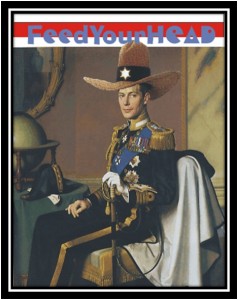
So I forgot in our presentation to come back to why I included this slide… it is a photoshopped image of King George VI when he was still Prince of Wales in his naval uniform. My buddy and I added the “Feedyourhead” title caption and of course the cowboy hat. At the time we were looking for a visual style for a storyboard we were developing as a way to pitch a satirical fantasy script we’d written. I included the image as iconographic evidence for the Bortolotti & Hutcheon article on adaptation’s point about how future cultural diversity will rely upon whether these potent digital technologies will be used to subvert fidelity discourses. These discourses are mistaken in their assumptions about what constitutes aesthetic values such as “authenticity”, “relevancy” and “legitimacy”, but before I read the article I was never able to really articulate this conceptual error for myself in quite this way, although I have long known intuitively as an artist that it was short-sighted.
